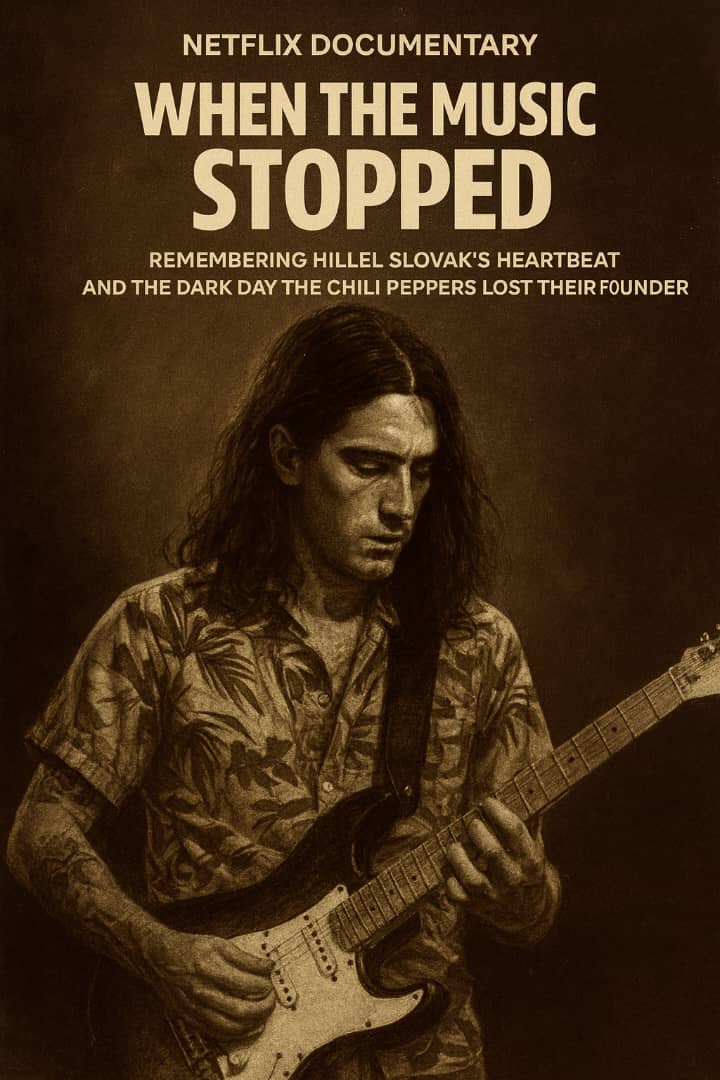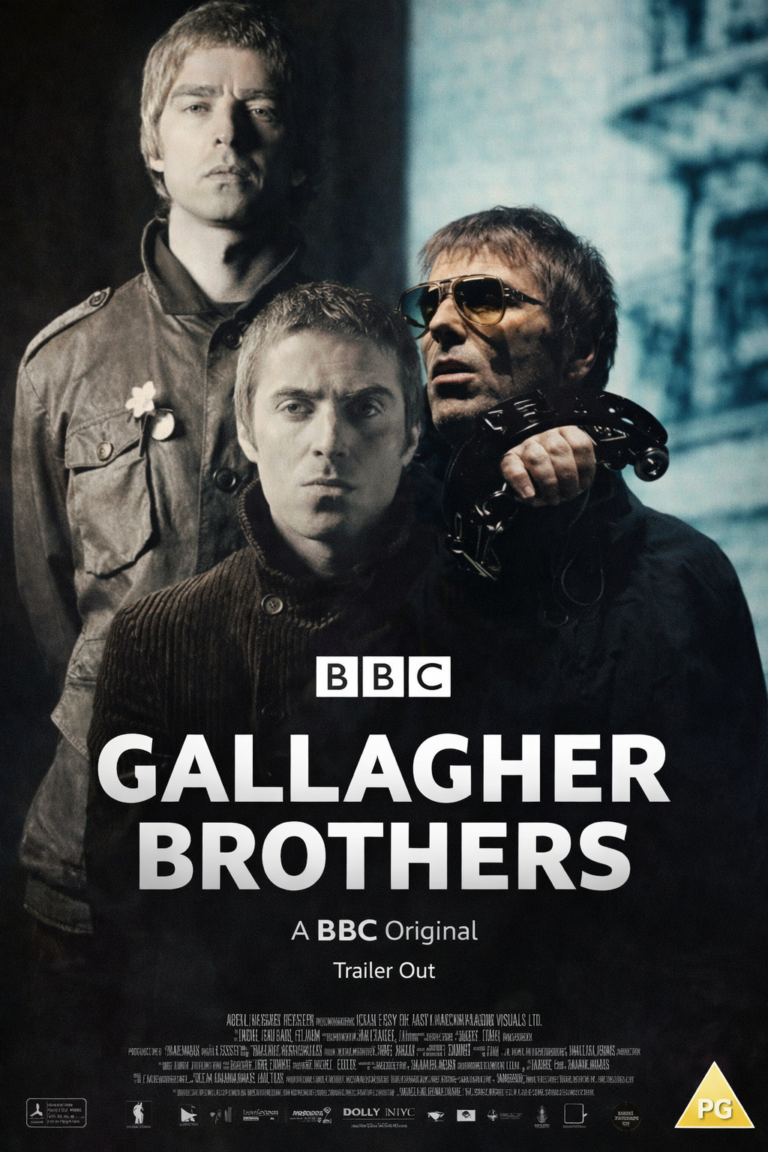
Netflix’s emotionally charged documentary When the Music Stopped delves into the life, art, and tragic loss of Hillel Slovak, the founding guitarist whose raw creativity and electric charisma became the early heartbeat of the Red Hot Chili Peppers. The film opens with grainy rehearsal footage, unfiltered laughter, and the unmistakable chemistry shared between Slovak, Flea, Anthony Kiedis, and Jack Irons. It is a reminder that before the fame, before the global tours, the Chili Peppers were just a group of fearless friends experimenting with funk, punk, and the boundaries of sound.
The documentary weaves Slovak’s early artistic ambitions with his musical awakening in Los Angeles. Interviews with childhood friends and teachers paint a portrait of a young man whose hands were rarely without a guitar, sketchbook, or paintbrush. Netflix presents a rare balance—celebrating Slovak’s vibrant spirit as much as his groundbreaking musicianship. Viewers are taken back to the chaotic early days of the band, where tiny clubs, broken strings, and improvised sets laid the foundation for what would become one of the most influential rock groups of the past four decades.
Much of the film’s power comes from its unflinching honesty. It does not shy away from the pressures that came with rapid success or the dangerous paths that opened in its shadows. Slovak’s struggle with addiction is explored with sensitivity, drawing from the band’s original journals, artwork, and never-before-seen personal recordings. Rather than sensationalizing, the documentary offers context and compassion, aligning with Slovak’s humanity rather than reducing him to his darkest moments.
The surviving band members recount the spark that made Hillel irreplaceable—the way his guitar lines felt alive, unpredictable, and deeply emotional. Flea reflects on their intertwined friendship, recalling nights spent dreaming about the future, writing riffs until sunrise, and chasing a sound no one else was brave enough to attempt. These recollections form the emotional backbone of the film, grounding viewers in the sheer magnitude of what was lost when Slovak passed away in 1988.
A pivotal segment of When the Music Stopped focuses on the days leading up to and following Slovak’s death. Rather than dramatizing the tragedy, Netflix allows those who loved him most to guide the narrative. Anthony Kiedis’ reflections are especially poignant as he shares the hollow silence that swept through the band—a silence that would change the Chili Peppers forever. It becomes clear that Slovak was not only a founding member but the emotional glue that held the young band together.
The documentary situates its emotional climax on December 4, 2025, highlighting the enduring impact of Slovak’s absence even decades later. On this date, the Chili Peppers are shown participating in a private memorial session, revisiting early demos and unfinished riffs that Slovak left behind. This sequence forms one of the most powerful moments in the film, bridging past and present with painful beauty.
By the final act, the film evolves from tragedy into tribute. Netflix celebrates Slovak’s musical legacy through restored concert footage, intricate breakdowns of his guitar style, and testimonies from modern artists who credit him as a foundational influence. From his frenetic funk rhythms to his soulful melodic bends, the documentary highlights how Slovak’s fingerprints remain on the band’s identity, long after his final day.
When the Music Stopped closes with a message of remembrance and gratitude. The Chili Peppers’ continuing journey carries echoes of Slovak’s brilliance, and the documentary ensures that new generations will understand the depth of his contribution. More than a story of loss, this is a celebration of a visionary whose flame burned fast but left a light that refuses to fade. Netflix has created not just a biography, but a memorial—one that honors the heartbeat that shaped the band and the dark day that changed their world forever.


